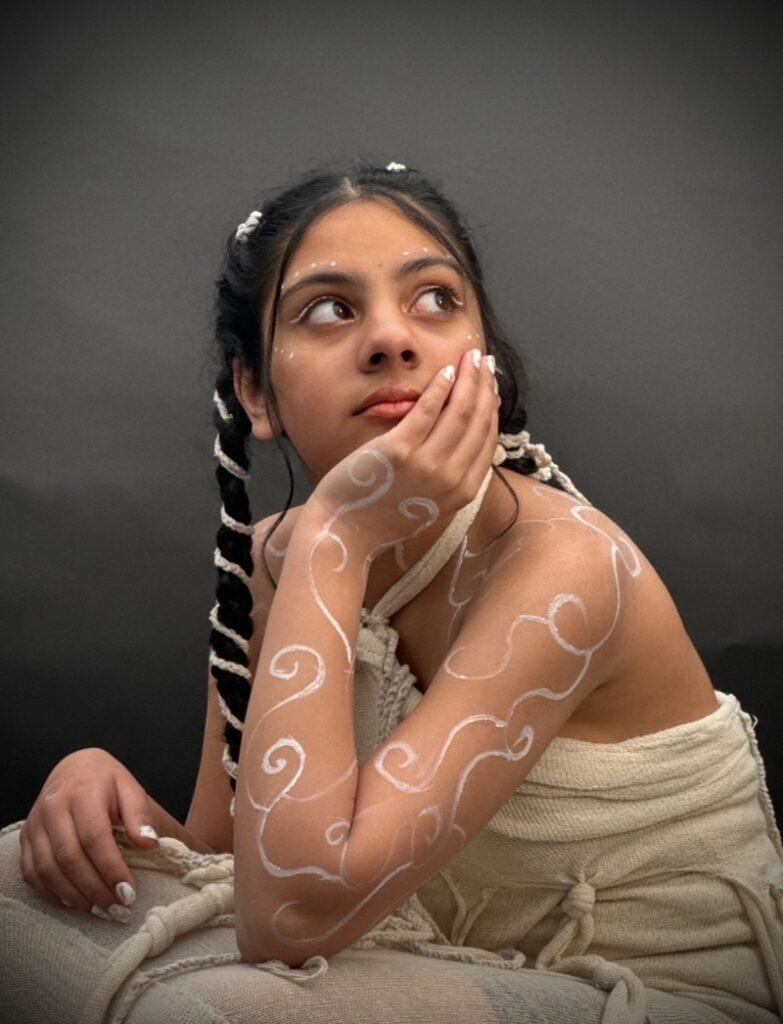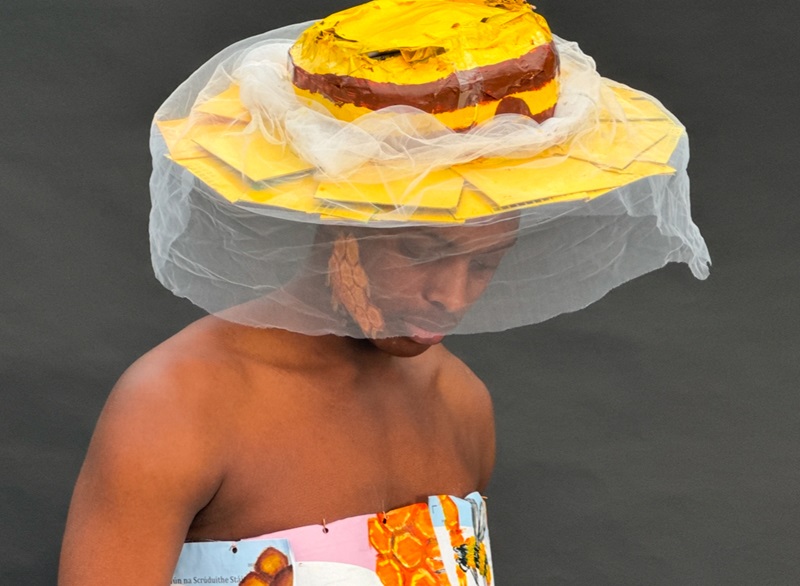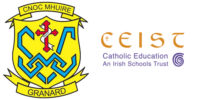Curriculum
Transition Year
What is Transition Year?
The Transition Year is a one-year educational programme available to students who have completed their Junior Cycle education. It aims to help young people to make the transition to senior cycle and beyond.
It is a broadly based programme which includes traditional academic subjects, careers education, work experience and social development. it helps students consider their own aptitudes and abilities and to reflect on their future educational and work choices in a year free from the pressures of examinations.
Each school designs its own Transition Year programme, within set guidelines, to suit the needs and interests of its students. In establishing its own distinctive programme content, the school takes into account the possibilities offered by local community interests. The fee is currently €350 and may be subject to change. Extra expenses may be incurred for bus transport and non timetabled programmes e.g. Gaisce.
Aims
- To get students more involved in what they learn in school;
- Enable students to take a greater responsibility for their own learning and decision making;
- To give students a wide range of experiences and skills in education;
- To develop students self-confidence and social skills to foster a greater awareness of adult and working life;
- At the end of the year students should be more capable of working on their own initiative.
Application to Transition Year
Application to enrol into Transition Year is made in March. Some prospective candidates may be interviewed to determine their suitability. A deposit of €80 is payable if accepting a place. Transition Year is optional.
TY Programme
Reports are sent to parents on VsWare at Christmas and Summer. Students are graded using a Credit system. There are a total of 500 credits available:
Depending on the credits achieved throughout the year, the student will achieve:
- Distinction – 90 – 100%
- Higher Merit – 75- 90%
- Merit – 55 – 75%
- Pass – 40 -55
A certificate of completion will be awarded to each student at the end of the year to represent this.
Sample Credit System (This may vary throughout the year due to the flexible nature of Transition Year)
| Criteria | Assessment Details | Credits Awarded |
|---|---|---|
| Attendance & punctuality | Every 3 days missing will lead to a loss of a credit – covid related absences e.g. close contact will be taken into consideration | 20 |
| Core Modules/Subjects Maths, Irish etc. | 10 credits per module/subject | 340 |
| Work Experience | Attendance, evaluation, employers report, Work experience diary/Project 20 x 2 | 40 |
| Extra-Curricular participation/completion of courses/activities etc | This will be monitored through your ePortfolio only. Evidence of the activity must be provided e.g. a diary entry with detail, photos, certificate of completion etc. A name of a teacher/contact person also needs to be linked with the activity. E.g. helping out a teacher, organising an event, training with a team etc. | 50 |
| ePortfolio | Content: see portfolio notes | 50 |
| TOTAL | 500 |
The programme is regularly reviewed and evaluated by individual teachers, the programme co-ordinator and SMT. Students also give feedback by filling in evaluation forms.
Development of skills allows great experimentation and pupil creativity in selection, development and presentation of dishes. Core areas include: Festive cookery, product development, recipe book project, organic food, food science and hygiene certificate course is also followed. Aspects of Horticulture are also studied. The school purchased a polytunnel in 2023.
The school certifies students on completion of the programme based on their monitoring of students participation, enthusiasm, commitment, attendance and progress throughout the year. In addition externally certified courses are offered during TY, e.g. First Aid, Future Leaders, Driver’s Education. Modules and certification may vary from year to year.
Every year students take part in a variety of external competitions, trips and projects, e.g. Outdoor Pursuits, Junk Kouture, An Gaisce President’s Awards, The Gaeltacht, local theatre and Local Enterprise competition. Some years public speaking, Young Scientist or Aberdeen Angus competitions are undertaken. In Jan 2025, some of our TY French students participated in a student exchange with their penpals from Lycée Galilée in East Rouen. A foreign trip to barcelona is organised for May 2025.
TY pupils helped with raising money for various charities in Ireland- both local and national.
The aim of the TY programme is to empower students to take responsibility for their own health and physical well-being. The programme gives students confidence to make choices which will help them lead a healthy life and positively~ respond to the challenges they encounter.
Some of the activities include Archery Workshop, Pitch and Putt, Longford Tennis Club, Team Challenges, Games, Outdoor Pursuits, Personal Challenges. They also organise and run an orienteering event for 2nd years in Derrycassin Wood.
The Transition Year Irish programme focuses on the improvement of oral, writing, aural and communication skills. The students also get to learn about Irish culture and folklore and play an active part in ‘Seachtain na Gaeilge’.
TY Junk Kouture class continues on from great successes that Cnoc Mhuire Granard has had over the years culminating in winning the inaugural 2022 World Championship with “Back to the Future ” in the World Finals in Abu Dhabi. Many of the creations have won national awards and gotten through to the National and Regional Finals. “Don’t Fence Me In” won Best Video in 2019.
Junk Kouture offers students a creative way to become involved in active climate change initiatives, empowering them to change their behaviors. Junk Kouture is constantly evolving the educational materials available to both Teachers and students on sustainability issues and circular economies to help them look beyond their Junk Kouture project and begin to apply the knowledge learned to all aspects of their lives.
Junk Kouture encourages the next generation of creative, innovative thinkers. It will inspire your artist, metalworker, engineer, science, home-economics, or woodwork students to get thinking about new ways to re-create and re-use materials for a more sustainable future.


The four linguistic skills of reading, speaking, writing and listening are developed during this year. Project work, mock orals and written assessments are used to monitor progress.
Trips are organised which incorporate workshops and language sessions.
Students learn how to take photographs, film school activities and are involved in the production of our annual school magazine.
Includes development of performing skills such as guitar lessons, singing and workshops take place during the year.
An NCCA national study found those who had done TY “were more likely to retain subjects at higher level for leaving cert” than others.
Also TY students do better by an average of 26 points than those who do not do TY at senior level. Repeat students only gain an average of 5 points more than those who do TY.
There is growing anecdotal evidence as reported by the points commission that students who have taken the TY programme are more self-reliant learners when they enter third level education than their peers.
Students who do TY, which encourages students to organise themselves for projects and study, cope better with college.
From a report to the Department of Education all informants agreed that most students mature as a result of TY. There was consensus that TY promotes young people’s confidence, improves bonds between classmates and facilitates better relationships between students and teachers. Opportunities to explore adult and working life through work experience are seen as distinct benefits of TY. Students highlighted TY activities that involve learning beyond the conventional classroom. Many of the teachers indicated that TY has a positive impact on school climate, suggesting that TY can be effective in bringing changes in student’s attitudes and school culture at senior level.
Craft involves an exploration of various Art and craft techniques and activities. Students look at working with different materials and researching the work of relevant artists for inspiration. Students get the chance to work with materials such as paint, drawing tools, crafts, photography, sculpture, clay, large scale murals and more with the aim of working towards contributing to and enhancing the wider school environment and to showcase their creative talents.
One of the most exciting areas of Transition Year is the Mini Business Module run by the Student Enterprise Programme and our Business Studies Department. The Student Enterprise Programme is an initiative run by the Network of Local Enterprise Offices of Ireland. It is Ireland’s largest and most successful student enterprise programme with over 28,000 secondary school students participating each year.
TY students get to set up and run their own business and find out what it’s really like to be an entrepreneur by taking part in this enterprise education learning programme. Students grow in confidence through their involvement in the mini-companies and develop their public speaking and communication skills. The Mini-Company Module complements the Business Studies Junior and Senior Cycle curriculum, and has proved to be a genuinely rewarding experience for all our Transition Year students. It helps prepare students for the adult working life as they experience the successes, failures and challenges in the mini business journey.
Students develop various skills by participating in areas such as:
- Creating groups and brainstorming a product
- Market Research and Marketing
- Production
- Technology engagement
- Introduction of entrepreneurship and the working world
- Managing money and finance
At Cnoc Mhuire Secondary School a wide range of products are created and showcased each year. Students also take part in Christmas Markets where they can showcase their products and services.
Speakers are invited to the TY classes for a variety of subjects and topics. This year TY’s have enjoyed speakers from Longford County Enterprise Board, Female health, Bank of Ireland etc.
Incorporates design, skill development, knowledge of materials. A module on solid works is done which links directly with Leaving Cert Technical Graphics.
Students study local environment and global environment. Group project work, practical work, paired work are all engaged in during the course. Pupils take part in National Competitions such as agri-aware and young environment award. Links with Leaving Cert Geography and History projects are incorporated into course.
